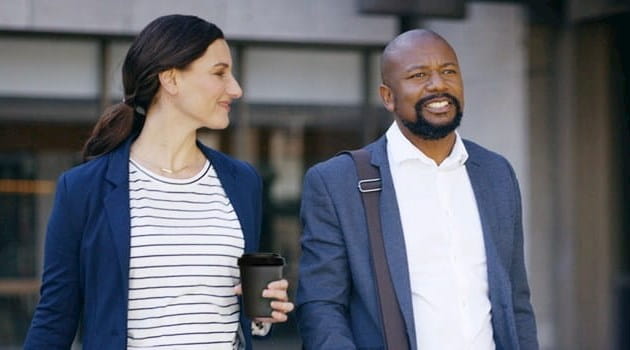Lee Freeman is one of the 1,000 Chartered Accountants acting on climate change, but he doesn’t lead the charge towards a decarbonised economy – he draws up the battle plan for companies and clients to follow.
“Our ultimate game, and we’ve been doing this with organisations over the years, is to help their journey to net zero to eventually becoming self-funded,” says Freeman, carbon solution specialist at Auditel, a cost, procurement and carbon solutions company. “The money they’re using for their carbon reduction plans actually comes from money they’re currently spending in their business. It’s just repurposing it and redirecting it into helping reduce their carbon footprint.”
After qualifying as a chartered accountant with Grant Thornton 30 years ago, Freeman cut his teeth in various corporate finance roles before setting up a member firm within the Auditel network back in 2010. The goal of the business was to help companies buy better and buy smarter in terms of energy and other indirect costs. Over the years Auditel gained specialists in the carbon efficiency landscape and has steered towards helping businesses reduce their carbon footprint.
“On the deregulation of the energy and the telecoms markets, you could think of Auditel as a commercial Go Compare or MoneySupermarket of its day, and really on the face of it as a utility bill checker. Consumers and businesses were provided with choice, and there was a lack of knowledge about what product to choose and what service is better for each business,” says Freeman.
Mapping out the battle plan
Auditel operates from a simple four-step process. First, they will help the organisation define and measure their current carbon footprint, and what they find is that the business ‘can’t see the wood for the trees’ – they literally don’t know where to start as the drive for net zero has created so much confusion in the marketplace.
The second stage is where Auditel will come up with a carbon reduction plan. That could be as simple as switching all the light bulbs to LED lights or introducing sensors into the building so lights turn on and off automatically.
He adds: “It can give you some easy wins, but as soon as your carbon reduction plan goes further you start getting into more challenging projects, for example, putting solar panels on the roof of the factory and starting to generate your own electricity.”
For the third step, Auditel focuses on what the company wants to achieve from the plan. If that is reaching carbon neutrality in that year, then they can help the business identify fully verified offsets to purchase alongside decarbonising initiatives.
In the final stage, Auditel has partnered with the British Standards Institute (BSI) and is now associate consultant to the BSI. This can lead to an outside third-party verification of a company’s carbon neutrality claims.
“There’s a lot of information around at the moment and organisations being accused of greenwashing, making environmental claims that they can’t substantiate,” Freeman continues. “We’re fully behind some of the certification and verification groups, which provide that third-party verification of an organisation’s claims and that can obviously help with brand awareness in their own marketplace as well.”
That process is then repeated year on year, gradually working with businesses to help them manage and reduce their carbon footprint over several years until, ultimately, they can become net zero.
Businesses have an obligation to protect the environment
Freeman believes that all businesses have a responsibility to help protect the environment for the future well-being of our children and grandchildren. “We can’t say we’ll leave it to the next generation because by then, in Boris Johnson’s words at COP26, ‘we’re at one minute to midnight, and it may well be too late.’”
Accountants are effectively the lynchpin for pushing these changes within businesses, as financial professionals usually hold senior positions and have a broad oversight of a company’s operations. But it also comes down to accountants in practice who are advising their clients.
Freeman continued: “I think accountants are very well placed, with their spread of knowledge and training, to help drive the push for net zero. My mission is aligned to that because I want to help organisations become carbon neutral, but in a way that’s meaningful, fruitful for them and hopefully self-funding. It’s a rather hackneyed phrase but maybe becoming carbon neutral doesn’t have to cost the earth.”
Here is a link to the Auditel website.
COP26: acting together
Find inspiration, information and practical resources to support the goals of the UN Climate Change Conference in Glasgow and explore why it represents a critical time for the profession.


